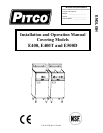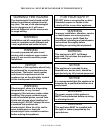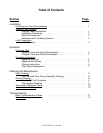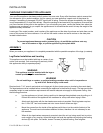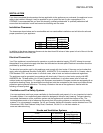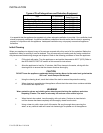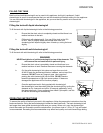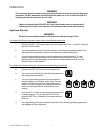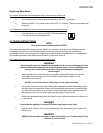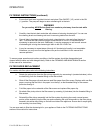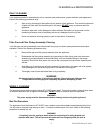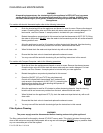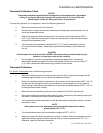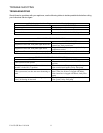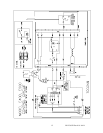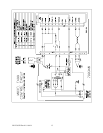
INSTALLATION
L20-258-UK Rev.01 8/16/04 3
Types of Fire Extinguishers and Detection Equipment
Topic UL Document
National Fuel Gas
Code Document
CO
2
Type Extinguishers ANSI/UL 154 ANSI/NFPA 12
Dry Chemical Type Extinguishers ANSI/UL 299 ANSI/NFPA 17
Water Type Extinguishers ANSI/UL 626 ANSI/NFPA 13
Foam Type Extinguishers ANSI/UL 8 ANSI/NFPA 11
Sprinklers ANSI/UL 199 ANSI/NFPA 13
Smoke Detectors ANSI/UL 268 ANSI/NFPA 72
Fire Detection Thermostats ANSI/UL 521 ANSI/NFPA 72
It is essential that the appliance be operated only when adequate ventilation is provided. Your ventilation hood
should be properly maintained. A qualified installation professional should ensure that the hood is operating
properly in conjunction with the appliance. Inadequate ventilation may not properly evacuate all appliance
emissions.
Initial Cleaning
When your appliance is shipped, many of its parts are covered with a thin coat of oil for protection. Before the
appliance is ready for cooking it must be cleaned. This will remove the oil coating and any foreign matter that
may have accumulated during storage and shipment. Refer to the following procedure to clean the appliance.
a. Fill the tank with water. Turn the appliance on and set the thermostat to 200°F (93°C) Refer to
the APPLIANCE START UP section of this manual for instructions.
b. Allow the appliance to heat for 15 minutes. Add Pitco cleaner to the water, stirring with the
cleaning brush to ensure that the cleaner dissolves thoroughly.
CAUTION
DO NOT leave the appliance unattended during cleaning. Never let the water level go below the
“Oil Level” mark stamped on the tank.
c. Using the cleaning brush, scrub the inside of the tank to remove the protective coating.
d. When cleaning is complete turn the appliance off and drain the water into a container suitable
for hot water and dispose of it.
WARNING
Wear protective gloves and clothing when cleaning and draining the appliance and when
disposing of water. The water is extremely hot and can cause severe injuries.
e. When the tank has cooled, rinse thoroughly with cool water. Continue to rinse the tank
until the cleaner has been completely and thoroughly rinsed from the tank.
f. Using a clean dry cloth, wipe out all of the water. Be very thorough when removing the
water, as any residual water will cause hot shortening/oil to splatter out of the appliance.



